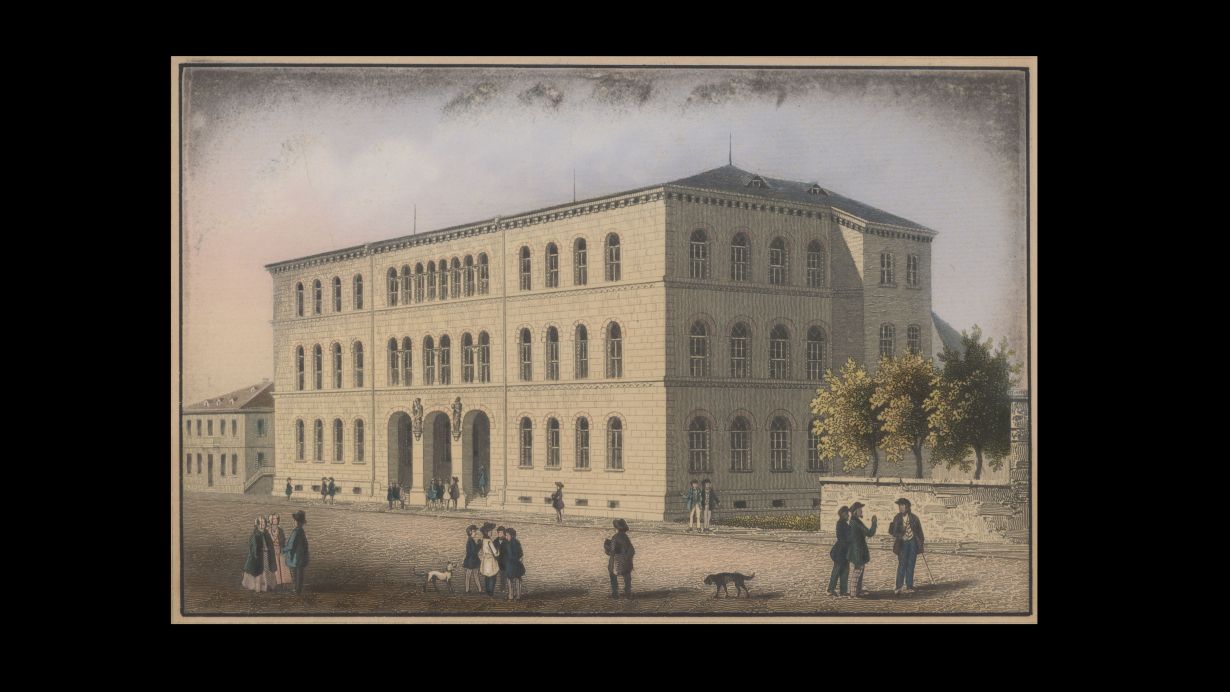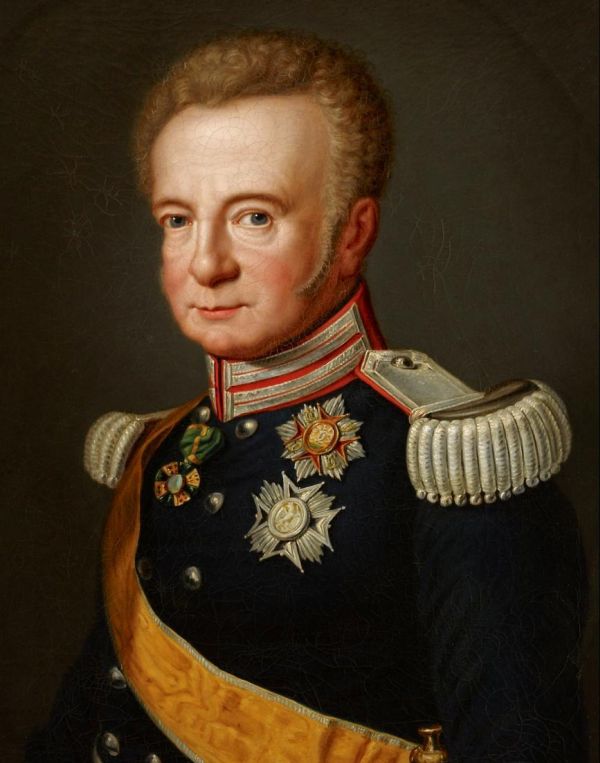
On October 7, 2025, Karlsruhe Institute of Technology (KIT) celebrates its anniversary. On the same day, exactly 200 ago, Ludwig I, Grand Duke of Baden, signed the founding decree for the Karlsruhe Polytechnic School, the first predecessor institution of today's University of Excellence. The Grand Duke founded it out of his "concern for the education of our dear and loyal bourgeoisie." Today, KIT is a place where science is shaping the future by contributing energy, mobility, and climate research as well as robotics and artificial intelligence.
The beginnings were quite humble: three classes, a dozen teachers, and classrooms located in the annex of the city church. However, the idea was fueled by a grand vision: Technology and science should serve the public good - for example with building bridges, roads, and towns. At that time, the education was practice-oriented: Using a ruler and a compass, the students analyzed how Johan Gottfried Tulla straighted the river Rhine, they practiced land survey, and learned how to draw with light and shadow - all without having a computer. "If you don't get your hands dirty, you won't learn anything about technology," was the motto of the teachers back then. At that time, there were neither female teachers nor students.

charter for the Karlsruhe Polytechnic Institute in 1825.
Better education of the population was meant to
boost the local economy. (Photo: Unknown,
https://commons.wikimedia.org/wiki/File:
Grossherzog_Ludwig_von_Baden_1820.jpg
#/media/File:Grossherzog_Ludwig_von_Baden_1820.jpg,
(accessed January 7, 2025), Public Domain)
From Engineering Lessons to Research for the Future
Gradually, the school of engineering became a university, which merged in 2009 with the Karlsruhe Research Center - the proportion of women among students is currently about 30%. Researchers from Karlsruhe contributed to the development of the periodic table of the elements, proved the existence of electromagnetic waves that enable mobile telephony, WiFi, radio broadcasting, and TV; and they laid the foundation for liquid crystal technology, the basis for today's touch screens. They constructed Germany's first nuclear reactor, founded the first department of informatics, and received the first e-mail on German soil. Today, KIT is a University of Excellence. Its researchers today focus on the energy transition, sustainable fuels, better cybersecurity, systems for Industry 4.0, or the mass of neutrinos, revolutionizing our understanding of the universe.
200 Years of Science and Pioneering Spirit
"In 2025, we are celebrating 200 years of science, technology, and pioneering spirit. KIT and its predecessor institutions have been a place of the future since 1825 - not only as a research institution, but also as an educational establishment," says Professor Jan S. Hesthaven, President of KIT. "It is a place of extraordinary feats and innovative ideas. It is a place where we work together to design and develop things that are visionary today, but could well be taken for granted tomorrow."
Anniversary Book and Program
On the occasion of the anniversary, the book "Karlsruhe Institute of Technology (KIT) From 1825 to 2025 - The First 200 Years" has been published (English version coming soon). It tells the story of KIT with historical images, anecdotes, and surprising insights - from Carl Benz and Heinrich Hertz to the energy transition and AI.
Accompanying the jubilee, KIT offers an extensive program as well as an exhibition in the ZKM | Center for Art and Media that will be open until October 19, 2025.
Being "The Research University in the Helmholtz Association", KIT creates and imparts knowledge for the society and the environment. It is the objective to make significant contributions to the global challenges in the fields of energy, mobility, and information. For this, about 10,000 employees cooperate in a broad range of disciplines in natural sciences, engineering sciences, economics, and the humanities and social sciences. KIT prepares its 22,800 students for responsible tasks in society, industry, and science by offering research-based study programs. Innovation efforts at KIT build a bridge between important scientific findings and their application for the benefit of society, economic prosperity, and the preservation of our natural basis of life. KIT is one of the German universities of excellence.






